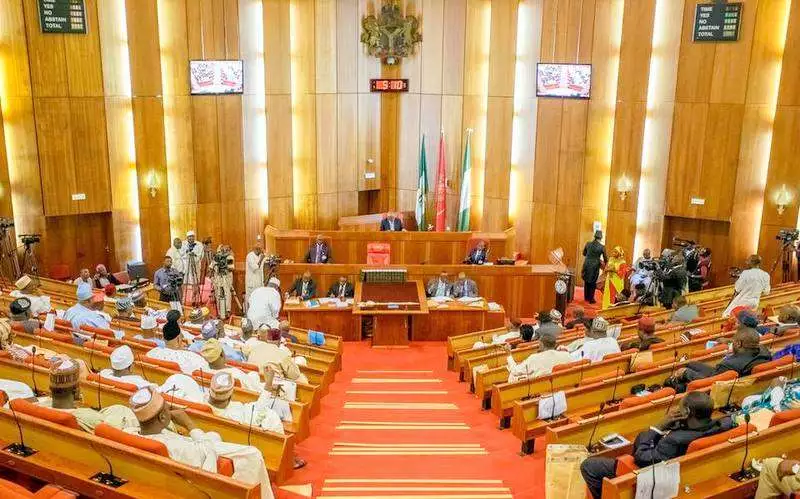The Nigerian Senate, on Tuesday, further compounded the nation’s debt overhang following its approval of $1.5bn and €995 million foreign loans for the federal and state governments. The Debt Management Office, DMO says the nation’s total foreign debt portfolio is over N33 trillion by end of 2020 and many Nigerians have called for restraints on the part of the President Mohammadu Buhari-led government to borrow more funds.
The administration has borrowed more funds since it assumed power in 2015, much of which came from the Peoples’ Republic of China amidst public outrage that the country could find it difficult to pay back the huge debt which many say has become unsustainable in the face of dwindling revenue from crude oil, Nigeria’s mainstay. But the government says the loans are needed to close the infrastructure gap left by previous administrations.
Both the minister of Finance, Zainab Ahmed and Transportation, Chibuike Amaechi have recently said the loans are being used to build railways and other social amenities required to leapfrog the country to development. In spite of this argument, critics of the government insist that the situation seriously calls for introspection, considering the remote and future impacts on economy.
The Senate had given its approval, saying the loans were part of the external borrowings requested by President Buhari, in May 2020, to finance various priority projects of the federal government and to support the state governments facing fiscal challenges.
The nation’s upper legislative chamber endorsed the loan sequel to consideration and adoption of the report of the Senate Committee on Local and Foreign Debts, Chaired by Senator Clifford Ordia, who while presenting the report said $1.5 billion will be sourced from the World Bank to finance projects of state governments facing fiscal challenges arising from the COVID-19 pandemic.
According to the details cited by the magazine projects tied to the World Bank loan are States Fiscal Transparency, Accountability and Sustainability program to provide fiscal support to states, SFTAS and COVID-19 Action recovery and economic stimulus program to support State-Level efforts to protect livelihoods, ensure food security and stimulate economic activity, N-CARES.
The senator further stated that the €995 million to be sourced from the Export-Import Bank of Brazil is to finance the Federal Government Green Imperative Project to enhance mechanization of agriculture and agro process in Nigeria to improve food security, adding that the borrowings were largely concessional loans with low interest rates and a reasonable moratorium and payback period.
He said “the Committee most importantly notes that the indicative terms and conditions under which the loan will be borrowed, there are no unusual or onerous conditions attached and the terms do not in any manner compromise the sustainability of the Nigerian economy or impugn the integrity and independence of Nigeria as a sovereign Nation.
“The Committee finally notes that the Loan is in the immediate best interest of the Nigerian State and its citizens in dealing with the COVID-19 pandemic in a way that the economy will be positioned for quick recovery and resume growth.
“The Committee notes that while Nigeria’s Total Public Debt Stock is on the increase, it is still relatively low vis-a-vis the country’s GDP and the increased borrowing requirements is needed to sustain the economic recovery.”
Discover more from The Source
Subscribe to get the latest posts sent to your email.








